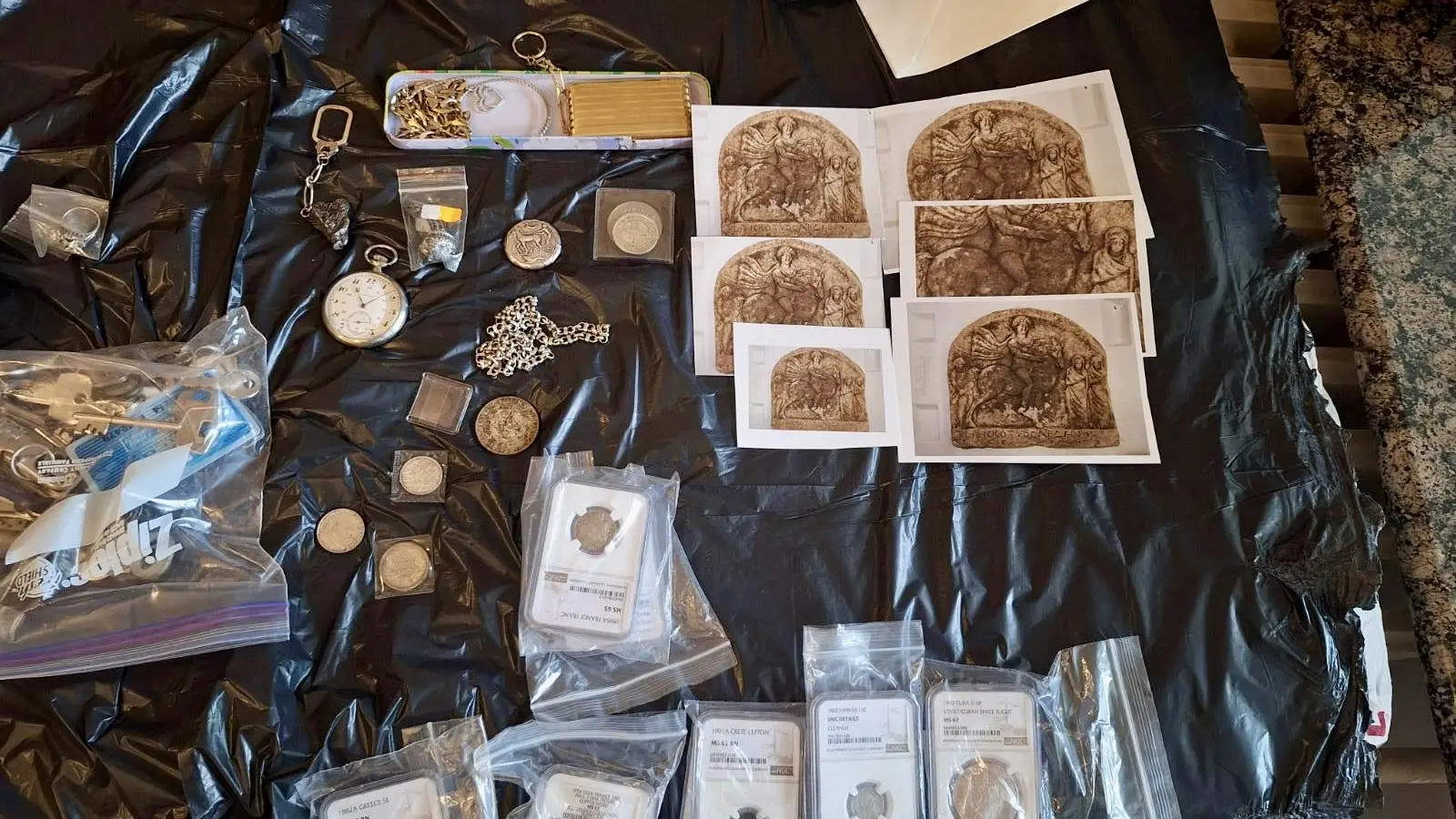On November 19, 2025, an operation coordinated by Bulgarian authorities, with the support of Europol and the participation of police and judicial forces from Albania, France, Germany, Greece, Italy, and the United Kingdom, led to the dismantling of a large criminal network involved in the illicit trafficking of cultural property. The operation took place within the framework of a Europol operational task force, which has been active since June 2024 at the initiative of Bulgarian authorities to facilitate the exchange of information and coordination of investigations. The operational day had two command centers, in Sofia, Bulgaria, and at Eurojust, with investigative activities remaining ongoing. The November 19 operational day produced significant results: thirty-five arrests in Bulgaria and more than one hundred searches conducted among homes, vehicles, and bank safe-deposit boxes spread across Albania, Bulgaria, France, Germany, and Greece. Authorities seized more than three thousand artifacts, including gold and silver coins and other extremely valuable antiquities, with an estimated value of more than one hundred million euros. The confiscated assets also include works of art, weapons, documents, electronic equipment, more than fifty thousand euros in cash and investment gold bars. Investigators believe the main target of the investigation, referred to as the High-Value Target, financed clandestine excavations in Bulgaria and other Balkan countries. The activities were allegedly conducted by groups of local diggers, coordinated by intermediaries connected to the suspect.
The investigation has its roots in a 2020 seizure in Bulgaria, when a house search led to the discovery of some seven thousand cultural artifacts of incalculable historical and monetary value. These were mostly Greco-Roman and Thracian antiquities, characterized by a high level of uniqueness and archaeological significance. The lack of provenance documentation for most of the artifacts, ascertained at the time by Bulgarian authorities, raised suspicions about illicit acquisitions. The objects have since been stored in the National Museum of History in Sofia pending the conclusion of the investigation. The seized collection included artifacts of extraordinary interest, some of them dating back to 2000 B.C.: masks, elements of military equipment, jewelry, vases, rhyton(a perforated container) and cups from Thracian and Greco-Roman contexts. Most of the objects were found to be without any proof of origin, while others had documents deemed dubious, issued by auction houses and art galleries active mainly in France, Germany, the United Kingdom and the United States.

Europol’s task force, which has been engaged since 2024 in liaison work between different national authorities, has made it possible to identify relationships between people distributed in various countries and to locate additional artifacts believed to belong to the same criminal network. The team’s work also helped launch new investigations in some of the eight states involved. During the operational day, Europol sent two experts to Sofia to support coordination across jurisdictions and provide analytical support. The context in which the network acted is the Balkans and Italy, areas rich in vestiges of Greek and Roman antiquity that have long been exposed to the interest of criminal groups. These individuals often operate through local cells, dedicated to looting, stealing and trafficking the artifacts, which are then placed on the market through legal and illegal channels. The high demand from collectors and individuals intent on cleaning up illicit capital makes the art sector particularly vulnerable to criminal activity. National authorities face major difficulties in countering irregular excavations, partly due to the complexity of the art market and obstacles in verifying the provenance of objects. Criminal networks therefore exploit these loopholes to circumvent controls and bring stolen artifacts, including those from conflict areas such as Syria and Iraq, onto the market. Over time, traffickers have developed systems capable of facilitating the sale and laundering of illegally acquired artifacts, posing significant risks to the protection of cultural heritage.
 |
| Trafficking in artifacts worth 100 million: operation in Bulgaria |
Warning: the translation into English of the original Italian article was created using automatic tools. We undertake to review all articles, but we do not guarantee the total absence of inaccuracies in the translation due to the program. You can find the original by clicking on the ITA button. If you find any mistake,please contact us.